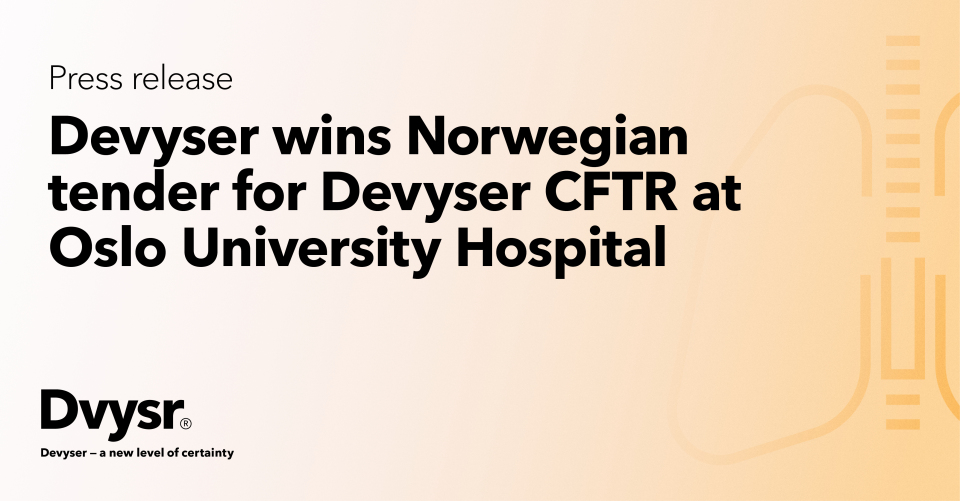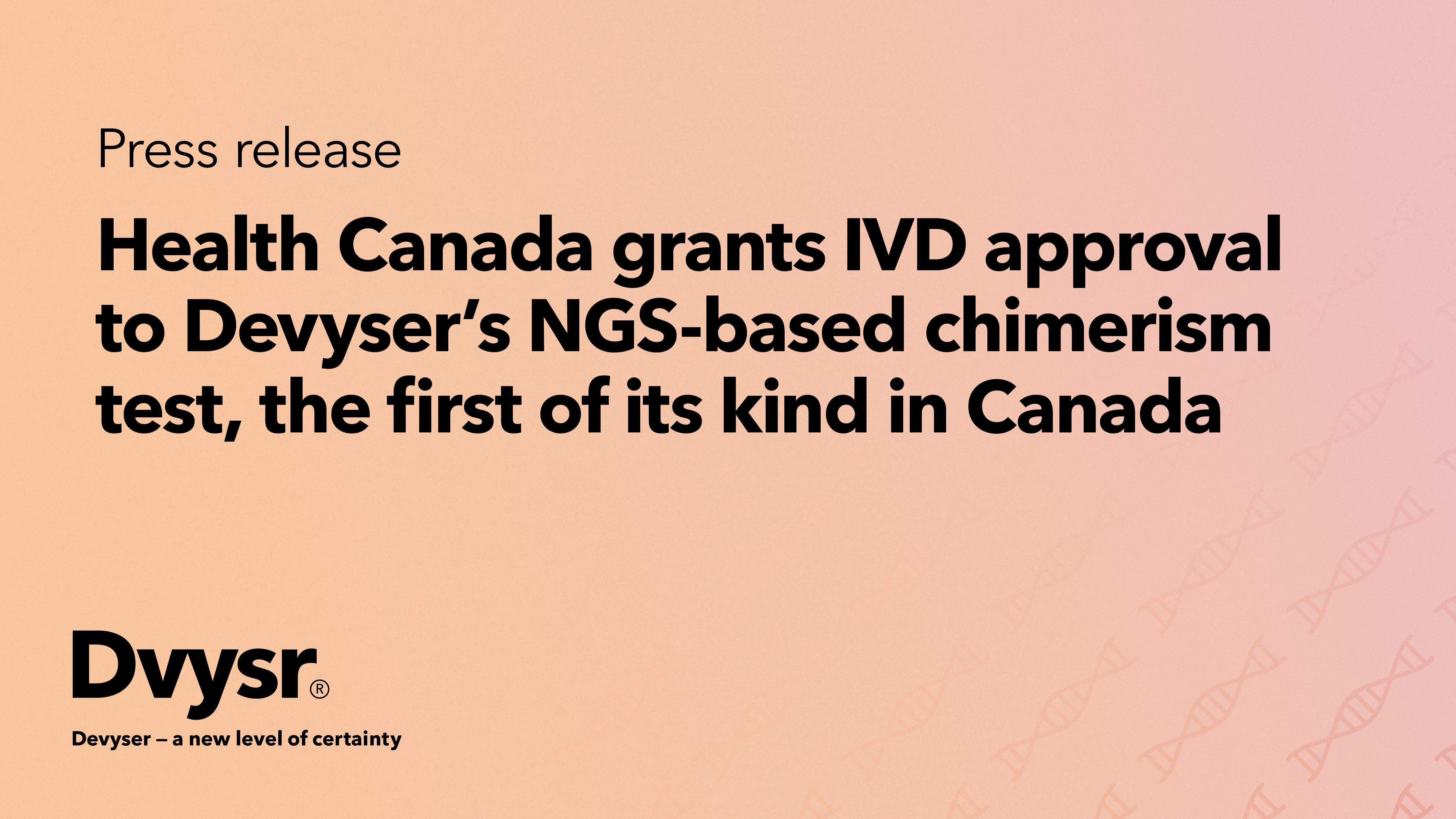Devyser enters Strategic Supply Agreement with Illumina to offer sequencing instruments and products
Devyser today announced that it entered a strategic agreement with Illumina, a global leader in DNA...
Oncology

Oncology | September 12, 2023
Devyser LynchFAP is the latest addition to Devyser’s expanding hereditary cancer screening portfolio ̶ a solution that allows the user to confidently localize all PMS2 variants, as well as analyze 9 genes associated with hereditary colorectal cancer syndromes.
Link to on-demand webinar: https://devyser.com/on-demand-webinar-on-devyser-lynchfap
Hereditary cancer syndromes are a type of inherited disorder in which individuals are at an increased risk of developing certain types of cancer. The fact that it is inherited – or hereditary – means mutations in certain genes are passed from one generation to the next, leading to certain cancer patterns being identified within families.
In 2020, the incidence of colorectal cancer cases worldwide was nearly 2 million, positioning colorectal cancer as the third most common cancer worldwide. Of these cases, it is estimated that 10-20% may be caused by hereditary cancer syndromes. The most common syndromes in relation to colorectal cancer are:
Although syndromes such as Lynch syndrome are usually associated with colorectal cancer, having such a disease predisposes individuals to an increased risk to develop multiple types of cancer, including uterine and ovarian cancer. It is estimated, that nearly 1 in 300 of the population carry mutations in DNA mismatch repair genes, such as those responsible for Lynch syndrome (Ko Win et al., 2017). However, most people do not know they do.
One of the most challenging genes in hereditary colorectal cancer is PMS2. This is because the PMS2 gene has multiple pseudogenes and a gene conversion with one of them, PMS2CL occurs frequently. The presence of pseudogenes is known to hinder the identification of genetic variants to the “correct or active” gene, mostly due to the sequences being highly homologous.
Furthermore, a gene conversion – a non-pathogenic per se phenomenon comparable to a cut and paste in the genome - between exons 13, 14, and 15, occurs in up to 60% of individuals (Ganster et al., 2010). Techniques exist to overcome this challenge, such as long-rage PCR. Currently, most methods to distinguish PMS2 variants from its pseudogene are lab-developed solutions of the long-range PCR. Until now, no commercial kit had included this approach.
Representation of PMS2 and its pseudogene, PMS2CL
In Devyser LynchFAP, we have introduced a long-range PCR, which is a variation of traditional PCR, to accurately determine variants in PMS2. This ensures that only sequence variants that are present within the active PMS2 gene will be analyzed, even if a gene conversion occurred.
Devyser LynchFAP is an amplicon-based NGS library prep kit, together with a specialized data analysis pipeline in our software Amplicon Suite, that covers 10 genes associated with the most common hereditary colorectal cancer syndromes: Lynch syndrome, FAP, and MAP. With a simple and easy to use workflow, it enables laboratories to efficiently implement the kit, while providing all reagents for a long-range PCR to unambiguously determine variants in all exons of PMS2. The dedicated software opens the possibility to evaluate PMS2 gene conversion rates and unravel complex genetic questions.
References
Ko Win et al., 2017: https://www.ncbi.nlm.nih.gov/pmc/articles/PMC5336409/
Ganster et al., 2010: Hum Mutat., 31 (5): 552-560. doi:1002/humau.21223

Devyser today announced that it entered a strategic agreement with Illumina, a global leader in DNA...
Read More

Devyser is proud to announce that the company has been awarded a tender by Oslo University Hospital...
Read More

Devyser, a leading provider of advanced genetic testing solutions, has been awarded a new tender in...
Read More

Devyser is proud to announce that One Lambda Devyser Chimerism and Advyser Chimerism have been...
Read More